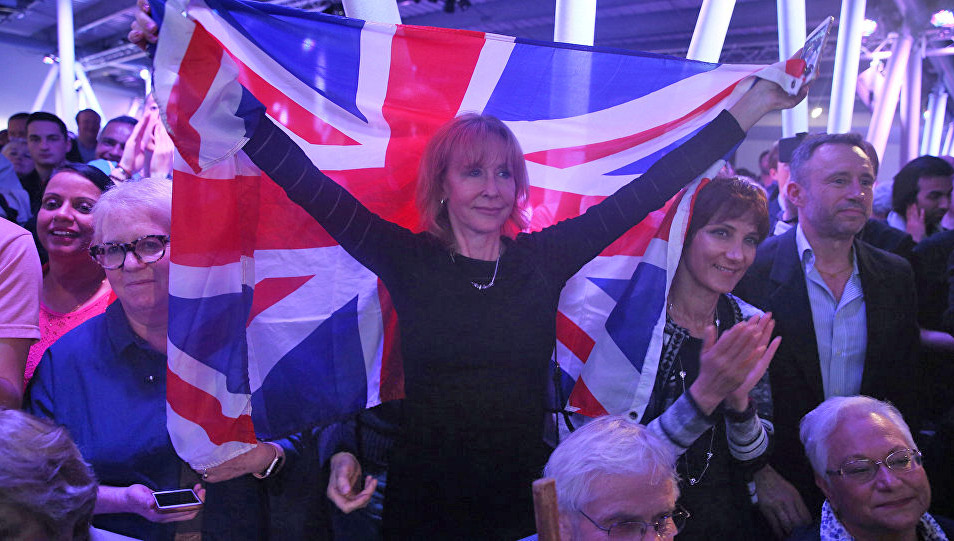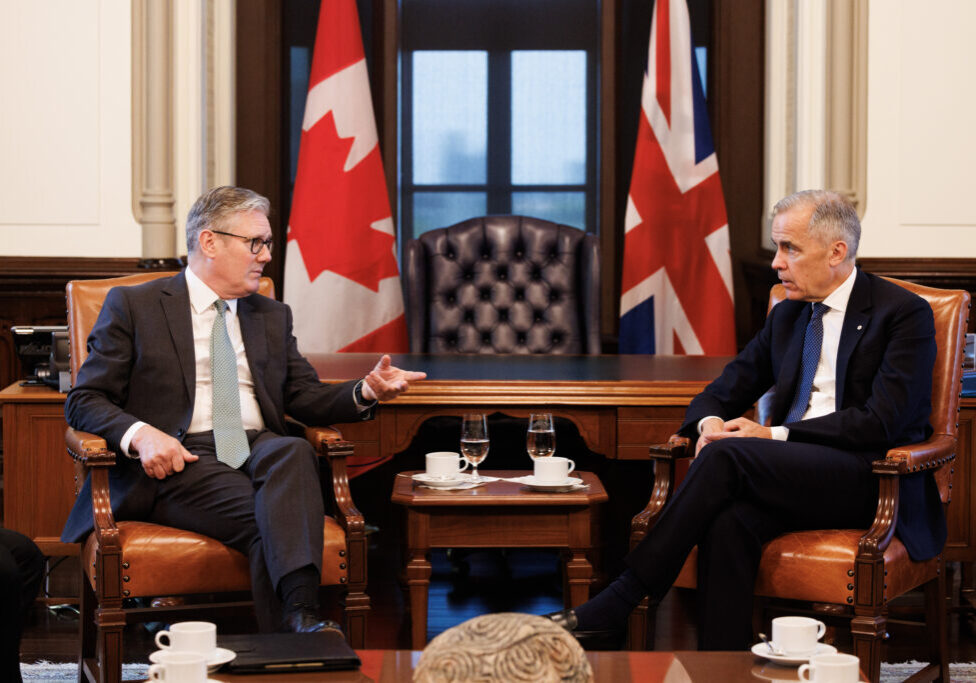Australia/Israel Review
Europa Europa: Brexit and Israel
Aug 5, 2016 | Douglas Davis

Is nationalism an unmitigated evil? The British people asked themselves the question at a referendum in late June and they said no. By a narrow, yet decisive, vote (52-48 per cent) they chose to withdraw from the often opaque, unelected and unaccountable EU and regain full national sovereignty. So began the long process of disengagement: Brexit.
Britain was not the first to say farewell to the EU: that distinction belongs to Greenland, which is, granted, not a full-blooded state but an autonomous part of the Danish realm. If Britain is the first state to walk away, it is unlikely to be the last. The rising popularity of anti-European nationalist parties in a myriad of western European countries – France, Germany, Austria, Italy and the Netherlands – suggests that difficult times lie ahead for the EU.
In the meantime, British voters have demonstrated that, like Israelis, they value the old-fashioned values of faith, flag and family; identifying primarily with their own history and heritage rather than an amorphous “European-ness”.
Former British Prime Minister David Cameron, who campaigned to stay in the EU, sounded an alarm for Israel and the Jewish community when he addressed a Jewish audience just days before the referendum: “Do you want Britain, Israel’s greatest friend, in there opposing boycotts, opposing the campaign for divestment and sanctions, or do you want us outside the room, powerless to affect the discussion that takes place?”
When the vote went against him, he resigned. His successor, Theresa May, daughter of an Anglican vicar and herself a devout Christian, is expected to be no less friendly towards Israel. She has visited Israel and declared herself a fan of Israel’s hi-tech achievements. As Home Secretary for the past six years, May has been uncompromising in her opposition to antisemitism, echoing the sentiments of French Prime Minister Manuel Valls that “Britain would not be Britain without its Jews.” And following the terrorist attack on the Hyper Cacher supermarket in Paris last year, she wore a sign declaring, “Je Suis Juif” (I am a Jew).
But, as Cameron noted, the British decision to uncouple from the EU, expected to take effect by 2019, was not unqualified good news for Israel: Britain, along with Germany, has been among Israel’s most stalwart diplomatic allies in the EU and its voice within the decision-making forums of the EU will be missed, particularly on the vexatious question of the “Middle East Peace Process”, which has nothing to do with the region’s real trouble-spots like Syria, Libya, Iraq, Yemen, etc.
Oded Eran, Israel’s former Ambassador to the EU in Brussels, said that from Israel’s perspective it would have been preferable for Britain to have remained inside the EU: “Britain’s role,” he said, “is still very important for Israel.” Israel does retain a powerful ally in Germany – at least as long as Angela Merkel occupies the chancellor’s office in Berlin.
Israel can also take comfort from the fact that while Britain, the fifth-largest economy in the world, will be withdrawing from the EU, it will retain substantial global influence through its permanent seat on the UN Security Council, as well as its membership in NATO, the Commonwealth, the G7 and the G20.
Within days of the British vote, Britain’s Ambassador to Israel, David Quarrey, sought to soothe Israeli concerns: the UK, he said, had been a friend and partner of Israel before it joined the EU and would remain so after it left. On a more tangible note, he assured Israelis that record levels of co-operation in trade, investment, science and technology were strongly in the interests of both countries. And he called for a deepening of mutual security and defence co-operation to combat the threats of extremism and terrorism.
Quarrey’s haste in conveying this message was not simply routine. Israel is Britain’s single-largest trading partner in the Middle East, with total annual bilateral trade expected to top US$10 billion this year, largely in Israel’s favour. The reason for this growing trade was summed up by the CEO of a leading British firm: “Israeli companies are highly entrepreneurial,” he said. “They know how to fuse technology with business requirements and they also move at a very fast pace. The competitive environment in the UK is becoming unbelievably fierce and retailers have to fight for their market share. They want technology that will merge the shopping experience online and in-store.”
Brexit could potentially enhance the trade relationship if Britain is able to put together a bilateral free-trade agreement with Israel relatively swiftly.
But there is a health warning in all this: the real answer to the opening question of this article is that nationalism does have a downside. While the rise of nationalism has been mostly relatively benign in Britain, that is not always the case elsewhere. The rise of right-wing nationalism in Europe and left-wing extremism in Britain is not unalloyed good news for minorities, particularly not for Jewish minorities, with their history of persecution in Europe.
Two events over the past month illustrate why Israel values allies like Britain and Germany and continues to harbour considerable suspicion of the European Union.
The first occurred when the President of the Palestinian Authority, Mahmoud Abbas, addressed the European Parliament in Brussels. In the course of his address he echoed a mediaeval libel that has been responsible for mass Jewish killings: he accused Israeli rabbis of urging the poisoning of the water used by Palestinians.
He made the claim in the context of calling for the revival of a committee designed to expose and denounce incitement: “We are against incitement,” he told the parliament. Then he added: “Just a week ago, a week, a group of rabbis in Israel announced, in a clear announcement, demanding their government, to poison, to poison, the water of the Palestinians… Is this not clear incitement, to the mass murder of the Palestinian people?”
The European parliamentarians responded to this outrageous suggestion by according the Palestinian President a standing ovation. A day later, with the damage already done, Abbas withdrew the accusation, admitting it was “baseless.”
The second event followed the Nice atrocity which witnessed an Islamist terrorist killing 84 people by ramming a truck into a crowd watching a fireworks display to celebrate France’s national day.
A 39-page report, produced by EU officials at diplomatic missions in east Jerusalem and Ramallah, was intended to examine whether anything could be learned from Israel’s experience in combatting the phenomenon of vehicle-ramming.
The ramming of civilians by Palestinians in Israel, said the report, was the result of “the Israeli occupation… and a long-standing policy of political, economic and social marginalisation of Palestinians in Jerusalem.” This, it asserted, was “the heart of the matter”.
Therefore, the report concluded, nothing could be learned from the Israeli experience, even though Israeli counter-measures had reduced fatalities to two from 32 vehicle-ramming events since October last year.
Israel started learning the lessons for defeating vehicle-ramming back in 2001, when a single incident cost eight lives. Now Israel deploys massive security for mass gatherings, like the Bastille Day celebrations in Nice, forcing Palestinian assailants to make do with less densely-populated targets, like bus stops or light rail stops, greatly lowering the death toll.
An Israeli police spokesman told the New York Times that an Israeli event, such as the one in Nice, would entail “a 360-degree enclosure of the area, with layers of security around the perimeter,” including major roads “blocked off with rows of buses, and smaller side streets with patrol cars,” plus a massive police presence reinforced by counter-terrorism units “strategically placed to provide a rapid response, if needed.”
Israeli security personnel have no qualms about using deadly force against terrorists in mid-rampage if less lethal means would take longer to succeed because they understand that the best way to save innocent lives is to stop the attack as quickly as possible. This lesson was compounded by a 2008 attack in which a Palestinian drove a heavy construction vehicle into a crowded Jerusalem street. A policewoman tried to stop him without killing him; she wounded him and then climbed into the cab to handcuff him. But while she was trying to cuff him, he managed to restart the vehicle and kill another person. He was shot dead.
If lessons had been learned from the Israeli security handbook, many lives would have been saved on the Promenade des Anglais in Nice on July 14. But that would have meant drawing a parallel between terrorist events in Israel and Europe, and European bureaucrats were unwilling to do that.
When I discussed the Brexit issue with a retired senior European civil servant on the eve of the British referendum, he was marginally in favour of Britain remaining in the EU. Now, given its implacable and irrational hostility to Israel, he is adamant that anything that can be done to weaken the European Union should be supported.
It is a curious irony that, as a brilliant young civil servant, he was a member of the European team that negotiated Britain’s accession to what was then the European Economic Community.
Tags: Europe, United Kingdom






